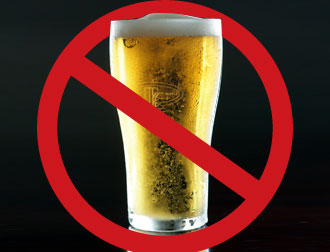
Trying not to go grey
It wasn’t our intention, but by making an innocent enquiry of Sierra Nevada to confirm some details for an article about their anniversary, Australian Brews News seems to have kicked over the grey market hornets nest.
 Passions are very strong about the issue, particularly when the suggestion that retailers that continue to stock grey market imports should be boycotted.
Passions are very strong about the issue, particularly when the suggestion that retailers that continue to stock grey market imports should be boycotted.
In researching the story, very few of the distributors or retailers that Australian Brews News has approached for comment and feedback about the issue have even replied to our approaches. The very few who have replied are not willing to put their case for importing them and stocking them on the record. Australian Brews News official stance is obviously unpopular which makes it even odder that with the apparent support for grey imports, none of the people who import or sell that grey market imports is willing to go on the record in support of them.
It is our view that the continued sale of grey and parallel imports hurts the market for the legitimately imported beers we want to drink, reduces the incentive for brewers to send other highly desirable beers to Australia and makes it almost impossible for principled retailers to do the right thing.
I contacted the Local Taphouse’s* owner, Steve Jeffares about the issue and asked whether their soon-to-open bottleshop will have a policy about grey imports. He replied:
Grey imports is always an interesting topic and we have debated it ad infinitum in-house leading up to the opening of our first bottle store.
To be honest, we flip and flop about what position to take. Fundamentally, I don’t want to sell beer that the breweries don’t want us to sell and that’s our current position.
As you well know, many craft beer consumers don’t mind how an overseas beer gets to their bottle shop, they simply want it. Other retailers have tried to adopt a similar stance to what we propose, yet they now feel compelled to sell grey imports to keep up with their competitors who sell them already. With more and more imported craft beers coming in grey, they felt they had no choice as having a “no grey import” policy severely limited their range when compared to the less ethical retailers. Obviously I am wanting to create a world class retail beer shop and this is usually judged by the range stocked so I cannot guarantee that we won’t be forced down that route at some stage to maintain a viable and competitive business.
I would like to see these overseas breweries and local importers somehow find a way to bring these products in legitimately (intermittently or regularly) and then ONLY sell to places who maintain and promote a “no grey import” policy. The prices also need to be competitive compared with the grey imports.
It is this last point that is critical.
The less ethical retailers say (off the record, of course) things like, “If brewers are not willing to ship their beers to Australia, we will do whatever it takes to get those beers to the people that want them.”
Sounds all very positive and fuzzy. Yet some of those same retailers still stock parallel market versions of beers that are legitimately available in Australia because they are cheaper. Strangely enough, they still sell these beers at similar prices to the legitimate ones.
The US brewers who are so highly sought after demand that care of their beer when driven across their city, and expect it when it is sent here too. It costs money to get beer half way across the world in good condition. Yet the same retailers who say they will get the beer here “at any cost” refuse to pay that cost. This only acts as a disincentive for quality brewers to send their beers here legitimately, fuelling the market for grey imports.
There are retailers who want to do the right thing and try to do it. I encourage you to choose not to buy from retailers who continue to support grey market beers to all of our detriment, and instead support those who are trying to do the right thing by craft brewers by supporting good beer in good condition.
*The Local Taphouse is a financial supporter of Australian Brews News. Steve Jeffares was the only retailer that we approached willing to go on record to discuss the issue.
**Australian Brews News stance on the issue does not reflect the views of its contributors or supporters.



